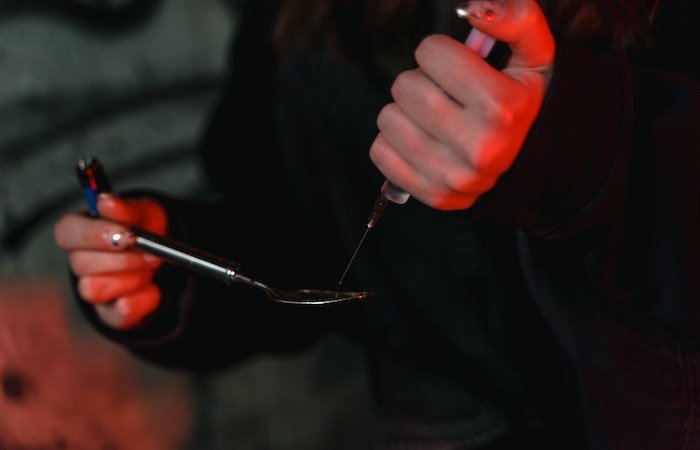Drug and Alcohol Rehab in Hammersmith
This article will discuss drug and alcohol rehab in Hammersmith.
According to the latest data from National Statistics, 275,896 adults were in contact with drug and alcohol services last year.
The largest substance group was opiates, which accounted for 51% (140,863) of all treatment entrants.
The second-largest group of entrants was for alcohol dependency – 28% (76,740).
Opiate and crack users (OCUs) accounted for 21,308 entrants, and crack accounted for 4,545.
Nineteen thousand two hundred nine adults entered treatment for cocaine and 27,304 for cannabis.
In the London borough of Hammersmith and Fulham, it was recorded that there are 2,584 adults with alcohol dependency.
Alcohol dependency is defined as the inability to stop or control drinking habits, despite negative social or health consequences. Usually, a dependent drinker will consume more than 14 units of alcohol per week.
In addition, Hammersmith and Fulham have 2,217 adults with opiate dependency and 987 adults with crack dependency. [1]
You can read more about the disease of addiction here.
For those suffering from drug or alcohol addiction in Hammersmith, this article will discuss what treatment is available, how to access it, and what to expect.
Get the support you need from a drug and alcohol rehab in Hammersmith by calling our team today on 0800 140 4690
What is rehab in Hammersmith like?

Addiction is not considered a ‘choice’ or ‘moral failing’ on behalf of the addiction sufferer – so the focus of rehab is always on returning agency to the patient.
Rehab, or residential rehab, refers to a treatment program provided by a facility or service to help people overcome their addiction.
Rehab provides a place where people can receive medical assistance and support during detox and help in achieving sobriety.
People will also be in an environment where they will receive addiction counselling, therapy, and the opportunity to talk to both medical professionals and peers.
There are many different models of rehab.
Some examples of common rehab models include:
- Therapeutic community rehab emphasises individual therapy, developing social and practical skills, and education and training
- Christian/faith-based rehab – this places Christian teachings as central to overcoming addiction and maintaining sobriety
- Eclectic/integrated rehab – a multifaceted approach which incorporates many different therapies and interventions
In general, however, most rehabs follow a similar formula:
- Pre-admission interview
- Initial medical examination
- Detox and withdrawal
- Therapy and counselling
- Relapse prevention
- Aftercare
Each of these will be covered in more detail below.
Discover for yourself what a rehab in Hammersmith is like by calling us today on 0800 140 4690
Pre-rehab steps: intervention in Hammersmith

It is not uncommon for people to have some reservations about entering rehab – it is a daunting prospect and can come with some social stigma.
In addition, some people might question whether they need help or if rehab is even necessary.
It is always advised to speak with medical professionals, regardless. Any substance consumption has the potential to cause health issues and lead to addiction.
For family members and friends of people using a substance, it can be difficult to know what to do or how to convince that person that they need help.
A useful tool to overcome this is to organise an intervention.
Intervention refers to gathering friends and family to convince a loved one that they need help.
Make sure that your loved one gets the help they need from a rehab clinic in Hammersmith by calling our team today on 0800 140 4690
How to stage an intervention?

- Spend some time researching interventions and addiction
- Decide who is going to be involved – make sure it is only the person’s closet friends and family
- Decide where the intervention will take place – choose an environment where the person will feel safe
- Practice what you are going to say before the intervention and perhaps write it down – focus on why you are concerned, the impact the addiction is having on them and their family and friends, and the necessity of seeking professional help.
- Remember to be positive and encouraging – the goal is not to berate and condemn
Interventions can be tricky and emotionally straining. Therefore, people should seek help from a professional – this could include an interventionist, a psychologist, a psychiatrist, or even a social worker.
Professionals will be able to help in various ways, such as helping organise the intervention, providing useful insight into the addiction and what help might be necessary, and acting as a mediator – this will help prevent arguments and negative confrontations.
To learn how to effectively stage an intervention in Hammersmith, call us today on 0800 140 4690
CRAFT intervention method

Another useful tool for interventions is the Community Reinforcement And Family Training (CRAFT) Method. [2]
This method was designed specifically for families that are struggling to get their loved ones to seek help.
It focuses on teaching families the tools necessary to conduct a successful intervention – in particular, communication and positive behaviour reinforcement.
Families will work alongside a professional, developing important knowledge and tools such as:
- Understanding why addiction occurs
- How triggers impact addition
- How to communicate in a positive manner
- How to reinforce positive behaviour
- How to support a loved one through their treatment
If you want to learn more about CRAFT, call our expert team today on 0800 140 4690
What treatment is available in Hammersmith?

Residential treatment is only one option. In Hammersmith, many free services can help with drug and alcohol dependency.
An example of this is Change Grow Live (CGL). CGL offers free advice and support for those suffering from drug or alcohol dependency in Hammersmith. [3]
Services they offer include:
- Relapse prevention and advice
- Alcohol and drug treatment
- Support for family and friends
- Peer and group support
For more information about CGL, please follow this link.
Get the help you need from a rehab centre in Hammersmith by calling us today on 0800 140 4690
Free services for those under the age of 25

For those that are under 25 and struggling with drug or alcohol dependency, Turning Point Resilience (TPR) offers free services.
TPR focuses on wellbeing and offers one-to-one support and advice, workshops, and drop-in appointments.
For more information about TPR, please follow this link.
For help accessing free rehab centres in Hammersmith, call us today on 0800 140 4690
Can I get treatment through the NHS?

In addition to free services in Hammersmith, it might be possible to access free treatment through the NHS.
This requires people to first speak with their GP. It is likely, however, that GPs will suggest trying local services before attempting to enter residential treatment through the NHS.
This is because most NHS treatment for drugs or alcohol is reserved for severe cases.
In addition, there is a need for funding through the council. This requires an application through a GP or key worker and evidence that this is the only option available.
Wait times can also be lengthy, ranging from six months to a year.
For help using the NHS to access alcohol and drug addiction treatment services in Hammersmith, call our team today on 0800 140 4690
How much will it cost to stay at rehab in Hammersmith?

Alternatively, both Hammersmith and London are home to many excellent private rehab facilities. However, these can be expensive.
High-end rehabs, for example, can cost £73,000 for a 30-day stay.
On average, however, private facilities based in the UK cost £495 per day (£14,000 for a 28-day stay).
These costs cover a range of things, such as:
- Utilities
- Insurance
- Addiction counselling and therapy
- Medication
- Food
- Staff costs
To learn how much your stay at an alcohol and drug rehab in Hammersmith is likely to cost, call our team today on 0800 140 4690
How long does rehab last in Hammersmith?

The duration of rehab is based on several factors, such as:
- Whether the treatment is inpatient or outpatient
- The substance being treated
- The detox and withdrawal process
- The type of therapy received
However, in the UK, the average treatment program lasts 28 days. It is not uncommon, though, for facilities to offer 60-to-90-day programs.
The duration of rehab is often evaluated based on a person’s needs.
For example, someone suffering from severe heroin addiction will likely need a longer rehab period.
This is because heroin is very addictive, and detox can be life-threatening. Therefore, in most cases, people will need medical assistance and constant monitoring.
Comparatively, although still unpleasant, the rehab process for someone suffering from cannabis addiction is less severe and usually requires a shorter stay at rehab.
To find out how long your stay at a rehab clinic in Hammersmith is likely to last, call our team today on 0800 140 4690
Inpatient vs outpatient rehab treatment in Hammersmith

Professionally supported drug and alcohol rehab is one of the best ways to recover from addiction.
Another factor that contributes to both the cost of treatment and its duration is whether the treatment is inpatient or outpatient.
Inpatient treatment is residential. That means that people will stay overnight at a facility for the duration of their treatment.
This tends to be a better option for those with severe alcohol or drug addiction, as 24/7 medical assistance will be available.
Inpatient treatment is more intense but, as a byproduct, tends to last for a shorter period than outpatient treatment – usually one month.
Inpatient treatment is more expensive, however. As mentioned above, it can cost several thousand pounds per month.
On the other hand, outpatient treatment is often free through local services. It can, however, last a lot longer than inpatient treatment – several months to a year.
This duration is due to the flexibility of outpatient treatment – it is usually made to fit around a person’s other obligations, such as work.
For outpatient treatment, people will be expected to attend weekly appointments (14 hours per week, on average).
Fortunately, both inpatient and outpatient treatment offer similar services – people will receive help detoxing, be offered counselling and therapy, and be provided with aftercare.
As studies have found, the main issue with outpatient treatment is that it does not remove the person from their environment.
This means that the person is still surrounded by potential triggers during their treatment program. [4]
For help deciding between inpatient and outpatient rehab clinics in Hammersmith, give our team a call today on 0800 140 4690
Alcohol detox and alcohol rehab in Hammersmith

Before entering rehab in Hammersmith, most facilities will require people to undergo a pre-admission interview.
This is a formality aimed at discussing why the person is entering rehab, the substance to be treated, and what they hope to get from the treatment program.
Following this, and when entering rehab, all patients are subject to a medical examination.
This aims to uncover any existing mental or physical issues, such as anxiety, depression, high blood pressure, or heart conditions.
This ensures that people are given the best treatment and appropriate medication.
Then, people will begin the detox stage of rehab. Detox is when the body begins expelling the substance.
Unfortunately, this can lead to a range of drug and alcohol withdrawal symptoms – sometimes life-threatening.
Please call our 24 hour helpline on 0800 140 4690
Alcohol withdrawal syndrome (AWS)

AWS ranges from mild to severe. Mild to moderate symptoms include insomnia, headaches, tremors (shakes), nausea, vomiting, delirium tremens and diarrhoea. [5]
More severe symptom includes high blood pressure, heart issues, respiratory issues, and seizures.
AWS usually emerges around 6 hours after the person stops drinking, with more serious symptoms emerging 12 to 48 hours afterwards.
Most symptoms usually begin to subside after several days.
To help avoid these withdrawal symptoms during alcohol detox, prescription drugs are often used. Perhaps the most commonly used prescription drug is Librium.
Librium helps regulate and stabilise off-balance neurotransmitters. This helps alleviate insomnia, reduce anxiety, and increase appetite.
Librium has a short half-life, meaning that it is less addictive than other sedatives. However, Librium has been known to cause drowsiness, stomach issues, and a lack of concentration.
For help beating alcohol addiction in Hammersmith, call our team today on 0800 140 4690
Cannabis rehab, cocaine rehab and heroin rehab in Hammersmith

The initial stages for cannabis, cocaine and heroin rehabilitation in Hammersmith are the same as mentioned above.
There will be a pre-admission interview followed by a medical examination upon entering.
However, the detox and withdrawal stage for these substances does vary.
Cannabis is considered to have a less severe withdrawal period and does not require a cannabis detox.
Cannabis withdrawal symptoms tend to be mild, including insomnia, stress, restlessness, trouble sleeping, agitation, and anxiety.
Such symptoms tend to occur within a week of stopping consumption and will begin to reduce after ten days.
Cocaine withdrawal is more unpleasant and tends to be more psychological than physical. Symptoms include paranoia, agitation, restlessness, anxiety and depression, and fatigue.
Cocaine withdrawal symptoms can occur as quickly as one hour after the person stops using, usually lasting between 7 to 10 days.
As both cocaine and crack cocaine are not physically addictive, cocaine detox is not necessary.

Heroin is highly addictive, and symptoms can be life-threatening. Mild to moderate symptoms include sweats, nausea, vomiting, anxiety, restlessness, and muscle aches.
Severe symptoms include respiration issues, hallucinations, increased heart rate, insomnia, and hypertension.
Withdrawal from heroin usually begins 6 to 12 hours after the person stops using.
Symptoms usually peak between 2 to 4 days and can last up to 10 days. In some cases, symptoms can last a lot longer but should continually reduce after several days.
To help reduce such symptoms during heroin detox, people will often be prescribed medication such as Suboxone, Methadone, or Buprenorphine.
Whether you are suffering from cannabis addcition, cocaine addiction or heroin addiction, get the help you need from a drug rehab in Hammersmith by calling us today on 0800 140 4690
Dual diagnosis at rehab in Hammersmith

Rehabs are also useful for people that have a dual diagnosis. Dual diagnosis refers to the interaction between mental health and addiction.
Both interact in several ways, with one often leading to the other.
Studies have found, for example, that people will commonly use substances to help cope with mental health issues.
Cocaine and cannabis are popular amongst people that suffer from anxiety, depression, or personality disorders.
Unfortunately, the continued use of such substances can lead to addiction.
Conversely, studies have found that addiction can lead to mental health problems such as anxiety and depression.
This is a vicious cycle that rehab aims to break through drug detox and therapy. [6]
To learn how a drug and alcohol rehab in Hammersmith will work to support your mental health, call us today on 0800 140 4690
What therapy will I receive during rehab?

There are many different types of addiction counselling and therapy. These can vary from rehab to rehab, but some are more common than others.
Most rehabs will implement some form of holistic therapy. Such therapy focuses on wellbeing and usually includes activities such as yoga, meditation, art therapy, music therapy, mindfulness, acupuncture or nutritional counselling.
On the more analytical side of things are therapies such as Cognitive Behavioural Therapy (CBT), Dialectical Behavioural Therapy (DBT), and Motivational Interviewing (MI).
Cognitive Behavioural Therapy:
CBT is probably one of the most utilised therapies, as it is well-researched and has a high success rate. [7]
CBT focuses on thought patterns and how such thoughts interact and manifest themselves in behaviour.
In theory, changing negative thoughts into positive ones should be reflected in positive behaviour.
Dialectical Behavioural Therapy:
DBT is like CBT but focuses more on thoughts and emotions. It seeks to help people understand emotions and learn the skills to better manage them.
In turn, this should be reflected in positive behaviour changes.
Motivational Interviewing:
MI focuses on understanding a person’s motivations – such as what motivates them to take a substance – and then discussing how such motivations can change to be healthier and more productive.
Most rehabs also offer peer-support groups such as group therapy. This therapy is conducted via group sessions where peers will have the opportunity to discuss their experiences and difficulties.
Group therapy sessions will often be led by a professional, such as a counsellor or psychologist.
To experience any and all of these superb therapies at a drug and alcohol rehab in Hammersmith, give our team a call today on 0800 140 4690
Relapse Prevention and Aftercare

Experts have agreed that abstinence is far more effective than harm reduction or moderation management – as a result, that’s what rehabs focus on.
Although most treatment has a high success rate, people are still at risk of falling back into old habits and starting using again – this is known as relapse.
To help prevent relapse, rehabs will offer people the opportunity to develop a relapse prevention plan. [8]
This involves working alongside a professional to uncover what might cause relapse or potential triggers.
This might include discussing certain environments, relationships, or financial issues.
Part of the relapse prevention plan is helping the person develop useful tools you can implement after rehab – cognitive reappraisal, emotional management, and positive communication, for example.
Upon leaving rehab, people must continue to receive the necessary support. That is why rehabs will offer aftercare.
This will include continued individual therapy and group therapy.
In Hammersmith, in addition to the free services mentioned earlier, there are also services such as Alcoholics Anonymous (AA), Narcotics Anonymous (NA), Cocaine Anonymous and SMART recovery.
AA, NA, and SMART are all available in Hammersmith.
Please call our 24-hour helpline on 0800 140 4690
Statutory-Funded Services & Alternatives to Rehab

Below are some of the free addiction facilities and groups in Kingston-Upon-Thames:
1. Club Drug Clinic
Address: 69 Warwick Rd, London SW5 9HB
Telephone: 02033173000
Website: http://clubdrugclinic.cnwl.nhs.uk/
2. The New Coach House
Address: Griffin Court, London W12 7LL
Telephone: 02087406815
Website: http://wellbeing.turning-point.co.uk/centrallondon/hubs/hammersmith-fulham/
3. Hammersmith and Fulham – The Alcohol Service
Address: Edward Woods Centre, 60 – 70 Norland Road, London, W11 4TX
Telephone: 0800 014 7440
Website: https://www.turning-point.co.uk/find-a-service.html#/108
Papyrus, Rethink Mental Illness, Young Minds Samaritans, or Mind can provide free well-being support to maintain your mental health as you heal from addiction.
Addiction Help From Rehab Recovery

If you are concerned about substance use, reach out to us for free help and advice choosing a rehab that’s right for you.
Call a member of our team today to find out which steps you can take to overcome addiction and start fresh.
We can also refer you to rehab centres in Brentford, Edgware, Feltham, Hampton, Harefield, Harrow, Hayes, Hillingdon, Hounslow, Isleworth, Northolt, Northwood, Pinner, Ruislip, Southall, Stanmore, Teddington, Twickenham, Uxbridge, Wealdstone, Wembley, West Drayton, Potters Bar, Enfield, Southgate, Edmonton, Wood Green, Friern Barnet, Hornsey, Finchley, Hendon, Ruislip-Northwood, Ealing, Willesden, Acton, Brentford, Chiswick, Heston, Isleworth, Southall, Harlington, Yiewsley, West Drayton, Staines, Feltham, and Sunbury-on-Thames.
All of the treatment centres we recommend are regulated by The Care Quality Commission (England and Wales) or the Care Inspectorate (Scotland).
We offer referrals to private rehabs throughout the UK, as well as free help and advice from hotline agents who are in recovery and know what you’re going through.
For help finding a suitable rehab in Hammersmith, contact Rehab Recovery on 0800 088 66 86.
References
[2] https://pubmed.ncbi.nlm.nih.gov/10689661/
[3] https://changegrowlive.org/
[4] https://www.sgu.edu/blog/medical/inpatient-versus-outpatient/


